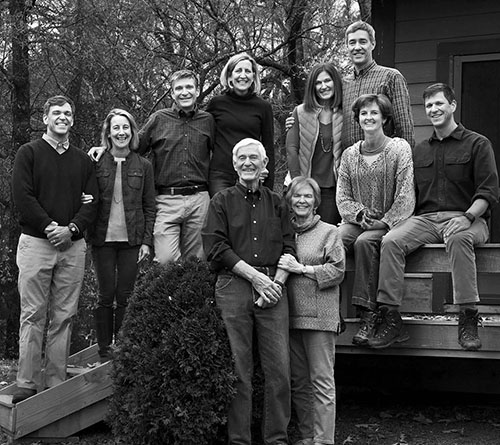
Wake Forest’s motto, Pro Humanitate, is a Latin phrase that means “for humanity.”
But as retired classics scholar James Powell once noted, the motto should not be regarded solely as denoting service for the sake of humanity. Often Romans used the word humanitas to mean kindness, he said. The following members of the Wake Forest community are examples of our motto in action. They exemplify kindness, service and, in the broadest definition, human flourishing. We salute them in this Pro Humanitate issue of Wake Forest Magazine. — Maria Henson (’82)
__________________________
Pro Humanitate profiles
(Jump to profile by clicking names)
- Muggsy Bogues (’87) — Retired professional basketball player (Charlotte)
- Ginny Niblock Britt (’70, MAEd ’73, D.D., ’96, P ’09) — Retired executive director of Crisis Control Ministry (Winston-Salem)
- Sara Johe Busse (’81) — Community volunteer and coordinator, Trinity’s Table (Charleston, WV)
- Nancy Robb Cope (’64) — Retired high school teacher and senior administrator for the Wake County Public School System (Garner, NC)
- Amos Disasa (MDiv ’06) — Senior pastor of First Presbyterian Church of Dallas (Dallas)
- James “Woody” Faircloth (’90) — National account manager, Comcast (Denver)
- D. David “Dutch” Hostler (JD ’75) and Megan Evers Hostler (JD ’77) — He is retired corporate counsel for IBM Corp. She is a retired attorney. (Kailua, HI)
- Candide Jones (’72, MA ’78) — Community volunteer and retired assistant director of the Wake Forest University Press (Winston-Salem)
- Jonathan Kirkendall (’83) — Psychotherapist and former youth program clinical director at Tragedy Assistance Program for Survivors for grieving military families (Washington, DC)
- Catherine “Cat” Mizzi (’20) — Community volunteer and Wake Forest Presidential Scholar — theatre (Stony Point, NY)
- Ginger Heflin Pridgen (’83, P ’17) — Founder of Homework Helpers (Midlothian, VA)
- Chip Rives (’87, MBA ’89) — CEO of Riddle & Bloom, a millenial and Generation Z marketing firm (Jamaica Plain, MA)
- Sam Sabin (’17) — Graduate student and philanthropist (New York City)
- Roger Stevenson (MD ’66) — Co-founder, retired director and still-practicing geneticist at the nonprofit Greenwood Genetic Center (Greenwood, SC)
- Jake Teitelbaum (’17) — Founder and owner of Resilience Gives (Boston)
- Rev. Mel Williams (’65) — Coordinator of End Poverty Durham and pastor emeritus of Watts Street Baptist Church (Durham, NC)
- Tycely Williams (’97) — Chief development officer for America’s Promise Alliance (Springfield, VA)
- David B. Young (’90) — CEO of Participate Learning (Chapel Hill, NC)
- Khalique Zahir (’87) — Reconstructive and plastic surgeon, chief of plastic surgery at Innova Fairfax Hospital (McLean, VA)
Tyrone “Muggsy” Bogues (’87, P ’09)
CHARLOTTE
Retired professional basketball player and member, Wake Forest Sports Hall of Fame and North. Carolina Sports Hall of Fame
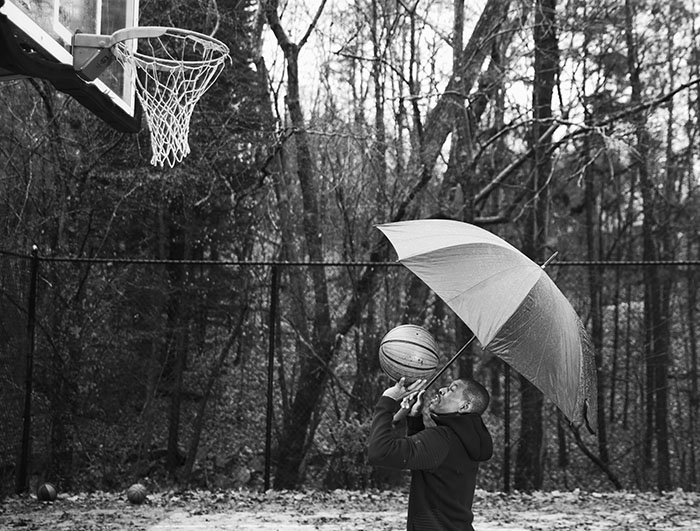
His cause: He founded Always Believe Inc., which supports at-risk students in Charlotte through a scholarship program, leadership development, character building, mentoring, sports and Chef Kim’s Cooking Camp, taught by his wife. His daughter, Brittney (’09), helps him with the foundation.
__________________________
“Growing up in a violent, drug-infested environment, getting shot at when I was 5, helped me understand what I needed to focus on if I wanted something more out of my life. Someone was always helping me, making sure that I had the right mindset and right values. I promised my mom I would try to do something to give back to the community. We started this in Baltimore, in the inner-city neighborhood where I grew up, to help at-risk kids and empower them and give them resources to enrich their lives.
. . . .
When my mom passed in 2001 it hit me hard, and I shut it down. When Brittney graduated, we talked about the foundation, and she reminded me what was most important, and we reopened it in Charlotte. We try to give at-risk kids opportunities for a better life. I have a passion for the kids. My mom always stressed that it takes a village to raise kids. I try to do my part and show these kids that someone believes in them.”
Ginny Niblock Britt (’70, MAEd ’73, D.D. ’96, P ’09)
WINSTON-SALEM
Retired executive director of Crisis Control Ministry
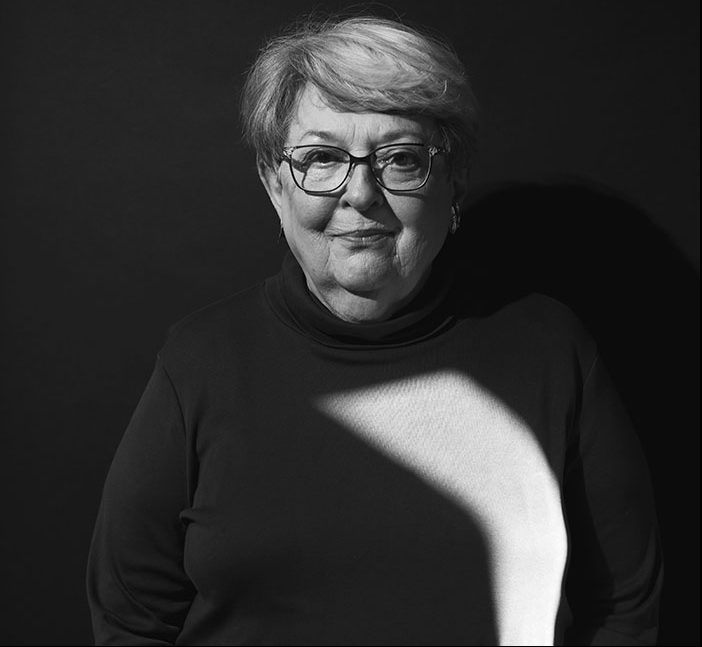
Her cause: She co-founded Crisis Control Ministry, the largest emergency assistance provider in Forsyth County, in 1974. She also helped start Advocacy for the Poor and the state’s first licensed free pharmacy and helped expand free breakfast programs at local schools. She received the Distinguished Alumni Award in 1990.
__________________________
“When I was at Wake, I taught in the first integrated Bible school (in Winston-
Salem) and became acutely aware of poverty and racism. I knew that’s what I wanted to be involved in. When Jesus said, ‘Follow me,’ he wasn’t just giving directions, he was giving an order to work for the things that he cared about.
. . . .
(Crisis Control co-founder) Ron Rice use to say, ‘To be in the place where the concern of thousands meets the needs of thousands is to stand on holy ground in what must truly be part of the Kingdom of God.’ That’s what Crisis is about. When we opened, we had $2,500 a month and thought we could solve the world’s problems. At some point, I realized the solution wasn’t charity but justice. That’s what led to Advocacy for the Poor to advocate for health care and a living wage. We suffer from a lack of empathy today; we’re called to help, not to judge. It’s really simple: We should care for one another.”
Sara Johe Busse (’81)
CHARLESTON, WV
Community volunteer and coordinator at Trinity’s Table, Trinity Evangelical Lutheran Church
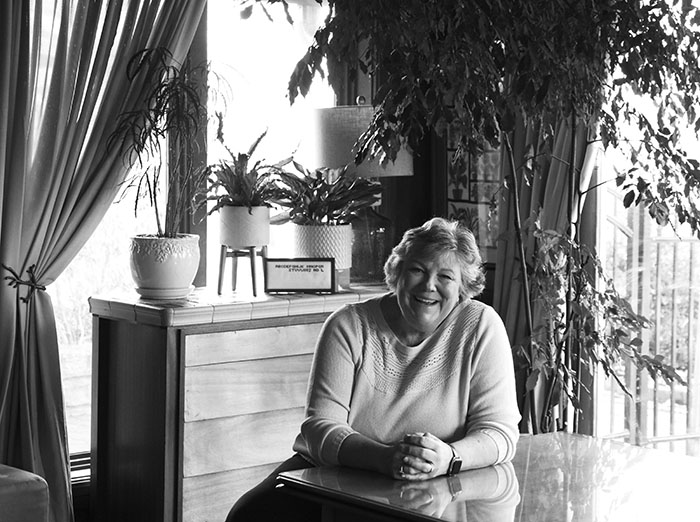
Her cause: She gave up her journalism career to become a full-time volunteer in her hometown. She helped start Trinity’s Table, which serves about 300 meals a week to anyone in need. She serves on the Charleston Homeless Task Force and has held leadership roles with the Clay Center for the Arts & Sciences, Read Aloud West Virginia, United Way of Central West Virginia and 2nd Avenue Community Center. She received a Women of Achievement Award from the YWCA Charleston in 2016.
__________________________
“When I was young, my mom used to give our trash collectors a cup of coffee when they picked up the garbage. She never said anything about it being the right thing to do; she just did it. She taught me that I wasn’t better than anyone else. It goes back to kindness; it’s about being a good human being. When I was in high school, I got the Wake Forest brochure — this was pre-internet — and I saw the motto. It appealed to me from Day One. The idea that every human being has dignity afforded to them is important. Everyone deserves to be treated with respect. Often, there’s an ‘us’ and ‘them’ mentality, a ‘good’ people vs. ‘bad’ people. These people (at Trinity’s Table) did not choose when they were children to be homeless or addicted to drugs. They’re good people who have a bad lot in life. How can anyone say that giving someone a warm meal is the wrong thing to do?”
Nancy Robb Cope (’64)
GARNER, NC
Retired high school teacher and senior administrator for the Wake County Public School System
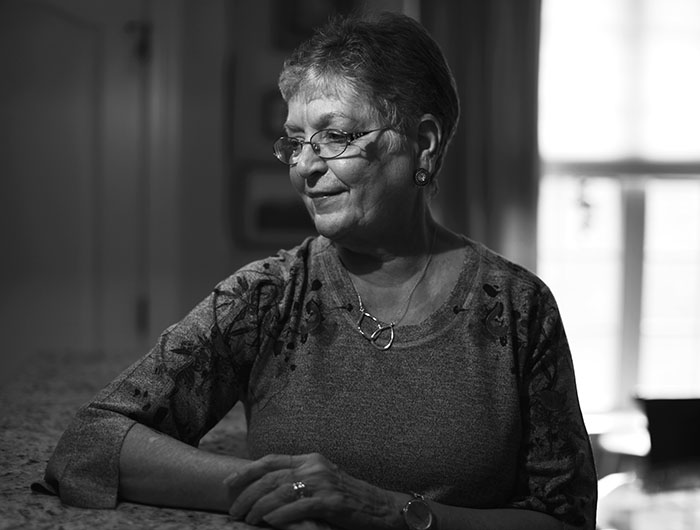
Her cause: She founded Bless This Child, which — through church groups in several North Carolina counties — has sewn and delivered more than 15,000 outfits to children in 27 countries. She has delivered outfits to 16 countries, including El Salvador, Nicaragua, Costa Rica and Armenia, and in the United States, and has made two dozen mission trips to teach English or to help construct houses and schools. She has also taught women in El Salvador how to sew so they can support themselves and make clothes for their own children. She also teaches citizenship classes to documented immigrants through her church. During the coronavirus pandemic, she led a group sewing masks for nurses and nursing home workers.
__________________________
“When you’ve taught for 36 years, you can’t stop cold turkey. You have to have a purpose. We hear from mission teams, ‘We’re going to Haiti or Honduras; do you have any outfits we can take?’ A friend told me that these things fall in your lap because that’s what God wants you to do. I keep two quotes on my refrigerator: ‘I read in a book about a man that goes about doing good; it distresses me that I am so easily satisfied with just going about.’ And ‘Our peace is found in our purpose.’ When I see pictures — my favorite is of a girl who just received a new dress and she’s got her hand over her mouth, like ‘It’s for me?!’ — I know what my purpose is. When you see the world’s forgotten children and then come home, you think ‘to whom much is given, much is expected.’ I’m not rich, but my rewards come in helping these children.”
Rev. Amos Disasa (MDiv ’06)
DALLAS
Senior pastor of First Presbyterian Church of Dallas, a cultural landmark founded in 1856
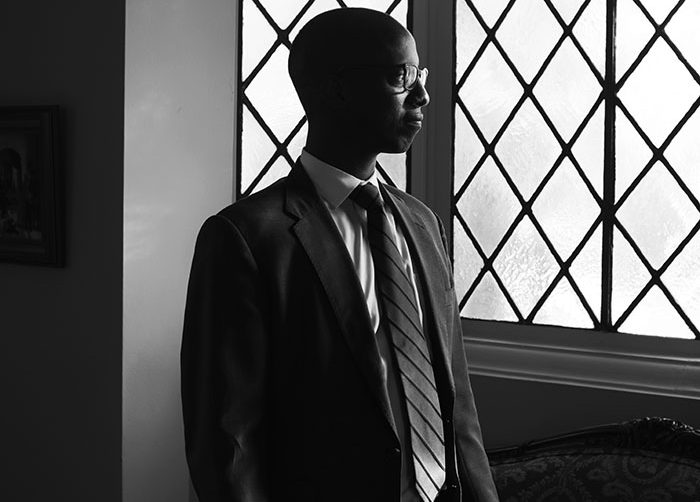
His cause: Ministry to the needy. He came as a 3-year-old with his Ethiopian parents to South Carolina after his father, a teacher, fled persecution from the Marxist revolution. After graduating in 2001 from Presbyterian College in Clinton, South Carolina, Disasa served in Brazil as a house parent in an orphanage for street children. As pastor of Eastminster Presbyterian Church back home in Columbia, he helped start The Footcare Ministry, in which church members remove calluses and wash the feet of homeless people, give them socks and shoes and refer them for medical treatment. He helped establish the city of Columbia’s Transitions Homeless Center. He founded Downtown Church “to create a church that I would want to go to” and grew it quickly by focusing on traditional music, diversity and plainspoken sermons. He moved to Dallas in 2019 with his wife and two children to tackle the challenge of growing an established church with a $5 million program that feeds homeless people three meals every day and offers health and dental clinics, caseworkers, art programs and weekly food distribution.
__________________________
“My experience in Brazil, my experience at Wake Forest — the emphasis on justice ministries — that was important (in drawing me to help the needy). But more than anything else was knowing that my family came as refugees to this country. If not for the help of some other people and a lot of luck along the way, I’d be tending sheep on a hillside in rural Ethiopia right now. … I feel like my life has to be consistent with the lives that people lived just to allow me to be alive.”
. . . .
“Gardner Taylor is one of the pre-eminent preachers of American Christianity in the last hundred years, and he was (preaching) at a regular service (in Wait Chapel). That was amazing. It was a moment I can remember saying I want to be a preacher. He was lamenting the state of churches and Christianity, the moderate nature of everything, and calling us to be more radical and take more chances.”
James “Woody” Faircloth (’90)
DENVER
National account manager at Comcast
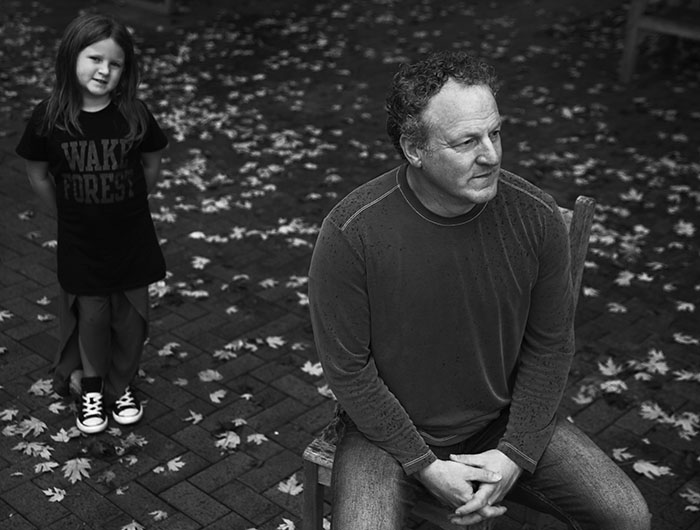
His cause: He founded RV4CampfireFamily to provide RVs for people left homeless after the 2018 Camp Fire that destroyed the town of Paradise, California; his nonprofit has given away more than 80 RVs. Shown above with his daughter, Luna, he was named one of 10 finalists for the 2019 CNN Hero of the Year.
__________________________
“I was raised in a good home with Christian values, and that was reinforced at Wake. And then I lived my life on cruise control, and it was a good life. When I met people (in California) who had lost their homes and everything they owned, I realized that merely living a good life wasn’t good enough anymore. Helping someone that you have never met, with no expectation of receiving anything in return, is the most rewarding thing that you will ever do. How can I just sit here and look around at how blessed my life is, when there are people struggling with things I take for granted every day? I didn’t really realize the meaning of Pro Humanitate until I lived it. Now I understand that it’s not just Latin words, it’s about serving our fellow man. Helping other people helped me realize what it’s like to live an exceptional life.”
D. David “Dutch” Hostler (JD ’75) and Megan Evers Hostler (JD ’77)
KAILUA, HI
He is the retired corporate counsel for IBM Corp. She is a retired attorney.
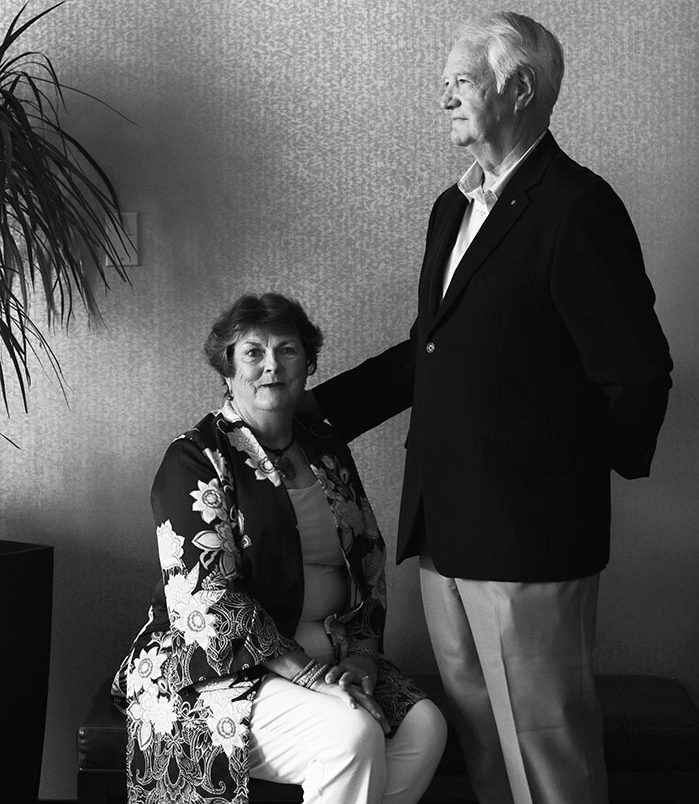
Their cause: Nine Line Foundation, an all-volunteer nonprofit dedicated to meeting the financial and specialized needs of injured soldiers and their families. Megan Hostler is president and CEO. Dutch Hostler, a veteran, is CFO and treasurer. Nine Line Foundation has been a crucial partner in supplying building materials and volunteers to erect transitional tiny houses for homeless veterans in Savannah, Georgia, with more work to come in Brunswick, Georgia. The foundation partners with Georgia Southern University to provide vocational training and career counseling, and it is supporting an aquaponics center to train veterans in soilless farming. “We don’t believe in a handout. We believe in a hand up,” says Megan Hostler.
__________________________
DH: “I graduated from West Point in 1968, served as a field artillery battery commander in Germany and in Vietnam, a branch transfer to the JAG (Judge Advocate General’s) Corps after graduating from Wake Forest School of Law and served a total of 32 years combined, active and reserve. We have two sons. They both graduated from the U.S. Military Academy as well. When they graduated, they went directly to medical school and are now doctors. But I have a love for soldiers. My wife obviously has a love of the soldiers. She started with me.
Why veterans are their cause:
MH: We’re a nation at war. We’ve been at war for —
DH: Too many years.
MH: All too many years. And the soldiers are forgotten. They’re not treated the same way they were when my husband returned from Vietnam, but there’s a huge divide in this country between civilians and the military, and it’s our obligation to bridge that divide so that together we can build the best and most safe and secure and free country for our children and grandchildren.”
Candide Jones (’72, MA ’78)
WINSTON-SALEM
Community volunteer and retired assistant director of the Wake Forest University Press
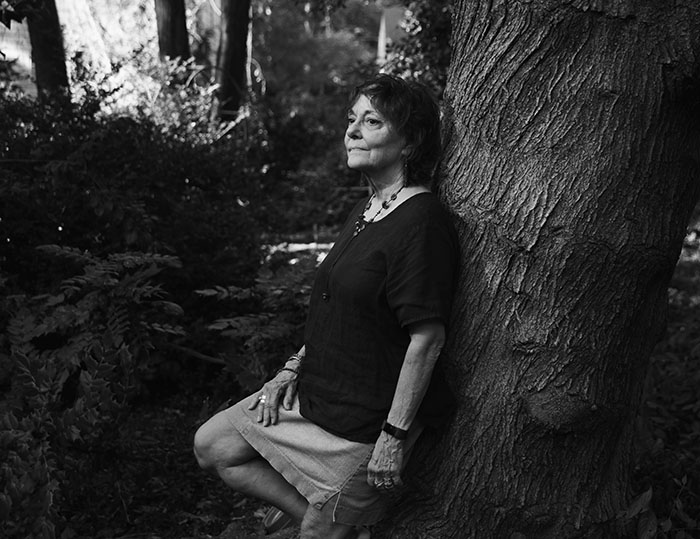
Her cause: “Standing up for underdogs.” She is president and co-founder of Piedmont Animal Welfare Alliance (PAWA), an all-volunteer nonprofit that partners with the Forsyth Correctional Center to oversee A New Leash on Life program. For 10 weeks qualifying inmates are paired with dogs that aren’t easily adoptable. Inmates teach the dogs nice manners, agility moves and house and crate training, readying them for PAWA’s adoption process and forever homes.
__________________________
“We can’t save every dog. We can’t save every man, but this is really redemptive work. This is a life changer for all of us who work with it. We teach men about persistence, praise and patience — the three Ps. I would add a fourth, which is prejudice. I don’t mean racial prejudice. I mean prejudice against people who seem so very other to us.
. . . .
I’ve had four major interests in my life. One is poetry. … The other three things: an inexplicable love for dogs. I wish we were more like dogs. They give unconditional love, and that’s one thing that I think the inmates haven’t received much of. The third passion of mine has been food. And lucky me, I got to run restaurants and be a restaurant critic and have a catering business. Fourth, I’ve always been interested in working with people on the margins.
. . . .
Everyone I’ve worked with has been guilty. I have not had one man say I didn’t do it. They’re in prison for a reason, and I understand that. But they are human beings, worthy of someone caring about them, someone wanting to help them try to figure out what to do when they get out. There’s a connection, you know, among us all. It’s not ‘we’ and ‘they.’ It’s just ‘we.’”
Jonathan Kirkendall (’83)
WASHINGTON, DC
Psychotherapist and former youth program clinical director at Tragedy Assistance Program for Survivors (TAPS) for grieving military families
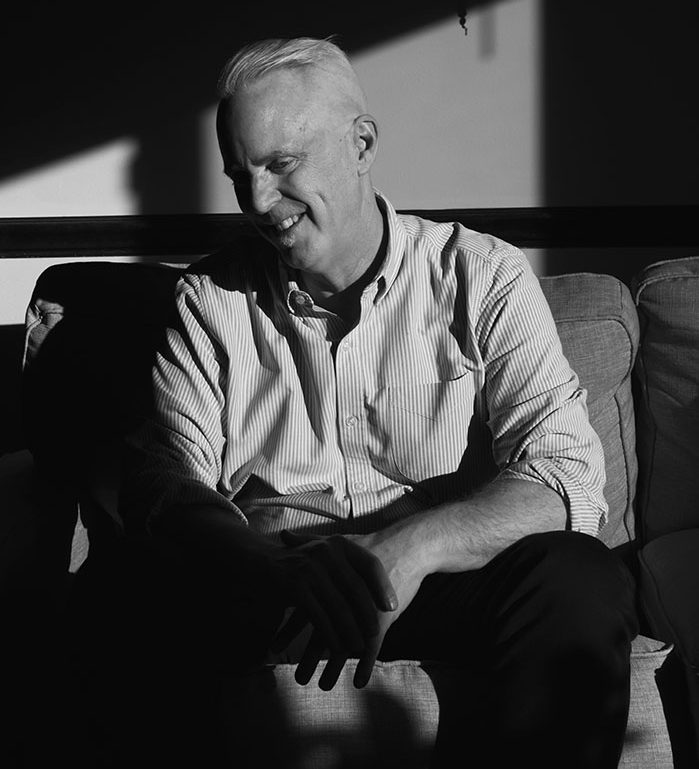
His cause: Helping needy or traumatized people. He grew up in Beirut, Lebanon, with his Southern Baptist missionary parents. They endured air raids, bombings and his father’s kidnapping and assault before fleeing to Iran, which they also fled during Iran’s revolution. As an adult, he was critically knifed in the face by street muggers in Washington. He became a psychotherapist to help others overcome fear and trauma, as he did with therapy. He has worked with homeless families, homeless mentally ill people with HIV/AIDS and abuse victims. He volunteered, then worked at TAPS to show support when his nephew was deployed to Iraq.
__________________________
“Very early I learned to identify automatic rifles and gunfire. The war (in Beirut) began the year we left (for Iran). I tell people ‘frying pan-slash-fire.’ When the Shah fell, we ended up going to India. I just remember that last day being like a nightmare. Everything is slipping away.
. . . .
(Haunted and sleepless after the knife attack) I found a therapist, … and I kind of loved it. I was like, “Eureka! I want to do this work!
. . . .
As a kid I was forced to (deal with trauma) due to circumstances, but now as an adult I choose to do it — which is to walk into those really hard places with a mind of curiosity and kindness and just be there, be present there, and somehow in that presence, the pain can be transmuted.”
Catherine “Cat” Mizzi (’20)
STONY POINT, NY
Community volunteer and Wake Forest Presidential Scholar — theatre
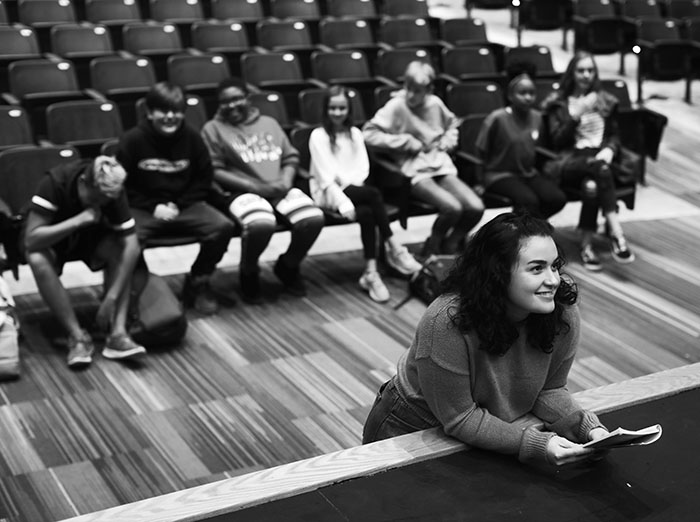
Her cause: Drama club at John W. Paisley IB Magnet School in Winston-Salem, a Title I school with a high concentration of lower-income students. Mizzi began volunteering at Paisley in 2016, over time growing the program from 20 students to about 50 and from 10-minute plays without props or costumes to full productions — for example, “Charlotte’s Web” — with lights, a sound system, costumes and props. The burgeoning drama club has been so successful that there is a push to add a theatre class during school hours in the fall. Mizzi, who spends about 20 hours a week on club matters, has taught drama skills and handled sound, lighting, design, costumes, props, marketing and fundraising. “Middle school can be really rough,” she says. She wants students to have “each other’s backs.”
__________________________
“I think for kids specifically, being able to have an outlet where they can feel welcome and like they can be themselves is exactly what Pro Humanitate exists for. … That’s what theatre can do for people.
. . . .
I had all the kids decorate little envelopes with their names on it, and we stapled them up, and we encourage the students to write notes to each other like ‘You did really great today.’ I also write them to the kids, and we fill the little envelopes. Whenever you’re having a bad day you can just pick one out. That was something we did in my high school, and I still have all of my drama mail. I have a box full of them and bring them with me everywhere. Being able to have a group of people that just were so supportive and important to me, it always makes me feel really strong. And like I had friends, or like I had a place I really belonged.”
Ginger Heflin Pridgen (’83, P ’17)
MIDLOTHIAN, VA
Founder of Homework Helpers
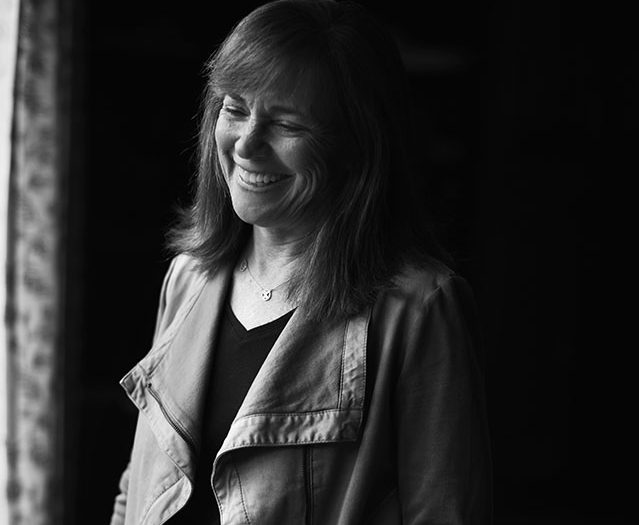
Her cause: When she was about to have an empty nest, she used her money and time to create Homework Helpers for Bon Air Elementary School’s children living in a mobile home park four miles away. In 2010 at bus stops, she posted fliers — one side in Spanish, the other in English — to invite elementary children to the program. She recruited local high school students to serve as tutors. At first 17 tutors paired with 17 children for once-a-week sessions; in fall 2019 there were 73 pairs. The main priority, Pridgen says, is to create a routine for doing homework in a quiet, calm place — in space donated by churches. The program emphasizes academics, good citizenship and manners. Typically, she awards two scholarships a year to tutors and hosts for Homework Helpers an annual Christmas party and an Easter egg hunt with 1,500 hidden eggs.
__________________________
“Having the available time, money and resources to help made it a no brainer to jump in and do something to try to give these kids a boost up for a better future. One wonderful, unexpected outcome from the program has been seeing my high school tutors also discover the true joy of giving back by impacting the life of another in a positive way. Since over 700 high school students in the area have participated in this program over the past nine years, I hope their experience as tutors sets them on the path of Pro Humanitate as they journey through life.
. . . .
In many cases, the weekly one-on-one time with their high school tutors is the only time these elementary children receive undivided attention. They look forward to that time and are excited to see their special friend each week. My time at Wake Forest instilled a love for community as well as education. To be in a position to help my community through education is a true joy.”
Chip Rives (’87, MBA ’89)
JAMAICA PLAIN, MA
CEO of Riddle & Bloom, a millennial and Generation Z marketing firm
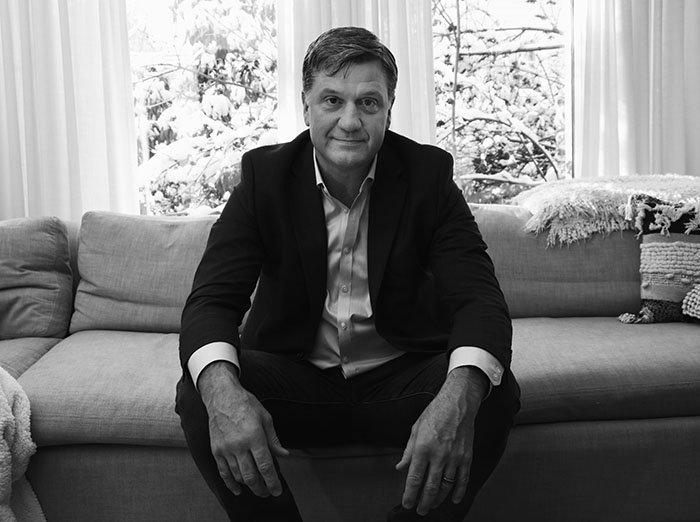
His cause: He started Santa’s Helper in 1986 to deliver toys to underprivileged children when he was a junior on the football team. He was named one of the Sportsmen and Sportswomen of the Year in 1987 by Sports Illustrated and appeared on the cover of the magazine as one of the “Athletes Who Care.” Santa’s Helper delivered toys and books to more than 900 children in 2019 and is the largest community service project carried out by Wake Forest student-athletes.
__________________________
“I’m a Christmas Eve baby, so Christmas has always been a big deal at our house. In 1986, my mom sent me an article about a woman in Texas who had started a Christmas program. What I loved most was that it was not people delivering toys out of charity, it was Santa Claus delivering toys, so it didn’t feel like charity. That idea of the magic and wonder of Christmas really resonated with me. I thought I could do something like that and get my teammates to help. I bought a Santa suit, and we delivered to 35 families that first year. As it’s evolved, we’ve been able to keep the magic alive; when Santa walks in, he knows the children by name. A lot of our recipients lack not only financial resources, but the joy and emotional support that should come to children every day. My own three children have done this a couple of times, and I hope they see how fortunate they are and that there are folks in the world who need our help.”
Sam Sabin (’17)
NEW YORK, NY
Graduate student and philanthropist
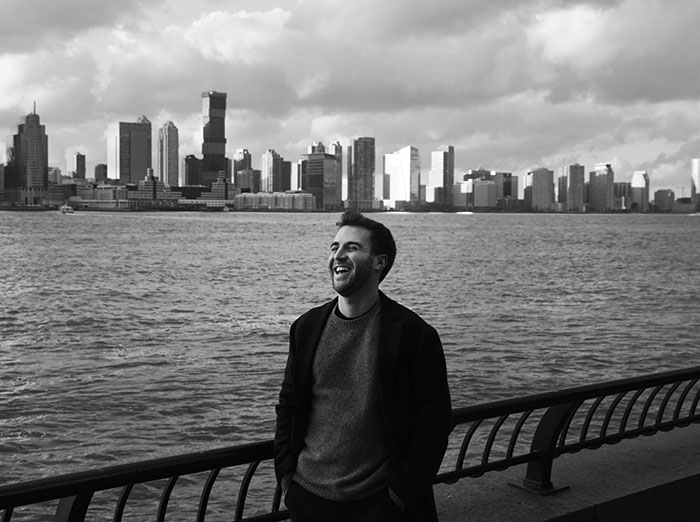
His cause: Species conservation and mitigating climate change on the biosphere. He has volunteered with Panthera, an organization devoted to the conservation of 40 wild cat species and their ecosystems. Sabin regards “predators as integral to all ecosystems.” He sits on the board of his family’s Andrew Sabin Family Foundation, helping channel grants and contributions to medical, arts, educational and ecological organizations such as Global Wildlife Conservation and projects involving the Lake Titicaca water frog, ploughshare tortoise, Galapagos gecko, horned lizard and snow leopard. Sabin is a master’s student in sustainability management at Columbia University and works part-time at the Island Resilience Partnership, which helps communities on the front lines of climate change to achieve renewable energy and sustainability goals through public-private partnerships.
__________________________
“There’s definitely no shortage of needs out there. … Philanthropy dollars are necessary to keep NGOs functioning, keep different projects functioning. And I think for me, being a young philanthropist, I truly enjoy providing new opportunities for people. I like focusing on and providing new experiences. I’m super fortunate to be able to help and direct dollars to important causes.
. . . .
Having a certain amount of finite time on Earth, I want to make the most impact in that time. … Being able to do that from a monetary perspective and a hands-on perspective is what I really want to achieve.”
Dr. Roger Stevenson (MD ’66)
GREENWOOD, SC
Co-founder, retired director and still-practicing geneticist at the nonprofit Greenwood Genetic Center
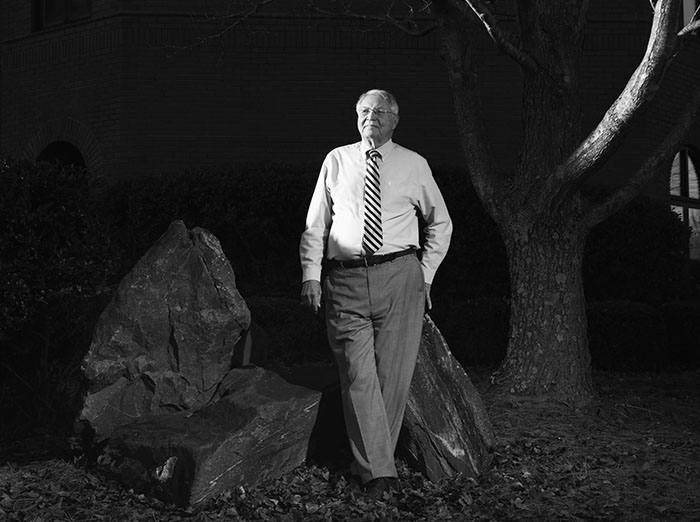
His cause: Curing genetic disorders. Among the mentors who inspired him in medical school was Richard B. Patterson (MD ’55), who cared for children with leukemia. “He was a role model for thinking that regardless of what the circumstances were, you could give them hope, and you could love them, and you could care for them,” Stevenson says. As a medical student, Stevenson built Bowman Gray School of Medicine’s first chromosome lab. He has discovered the genetic basis of many intellectual disabilities and started the South Carolina Autism Project to search for a cure. He founded the South Carolina Birth Defects Prevention Program, helping reduce the number of severe brain and spine defects in the state by 60 percent since 1992. He received the 2019 David L. Rimoin Lifetime Achievement Award from the American College of Medical Genetics and Genomics.
__________________________
“I had no concept that we would ever be able to sequence and hold genes in our hand and understand the biochemistry of life as much as we do today. … Gene therapy will be an everyday phenomenon 10 years from now.
. . . .
We are now past the point of diagnosis, … so over the remainder of my practice lifetime I want to see our entire specialty focused on a real litany of treatment possibilities. Just like a person who develops cancer, what do they want more than anything else? Cure. And that’s what I see for our patients with genetic disorders, and that’s where I will spend most of my energies.”
Jake Teitelbaum (’17)
BOSTON
Founder and owner of Resilience Gives
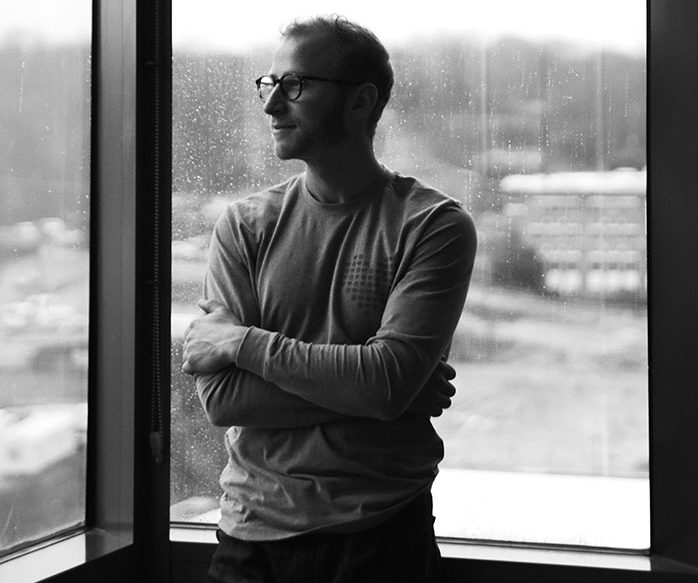
His cause: Giving sick children a chance to create something meaningful and creative. Resilience Gives makes colorful socks with polar bears, dogs or other fun images that pediatric cancer patients design with the company’s help. For each pair sold, the company donates a pair to a cancer patient. Teitelbaum was diagnosed with refractory Hodgkin lymphoma when he was a junior at Wake Forest. At one of his lowest moments, he broke down in tears in the hospital bathroom. The idea for Resilience Gives came to him when he looked down and was comforted by his favorite tattered socks emblazoned with a wolf howling to a rising sun. His cancer is in remission now.
__________________________
“At the time I was diagnosed it felt like I was surrendering my identity as an college student to an identity as a cancer patient. Socks come and go, but those (howling wolf socks) somehow had lived on. … They became a little symbol of identity.
. . . .
Not only does (a cancer patient’s) legacy live on through the design, they’re able to impact kids who are standing in similar socks. (I tell children) as someone who’s been there that there is light at the end of the tunnel, and … this experience is an opportunity to grow from, to become a better version of yourself.”
Rev. Mel Williams (’65)
DURHAM, NC
Coordinator of End Poverty Durham and pastor emeritus of Watts Street Baptist Church
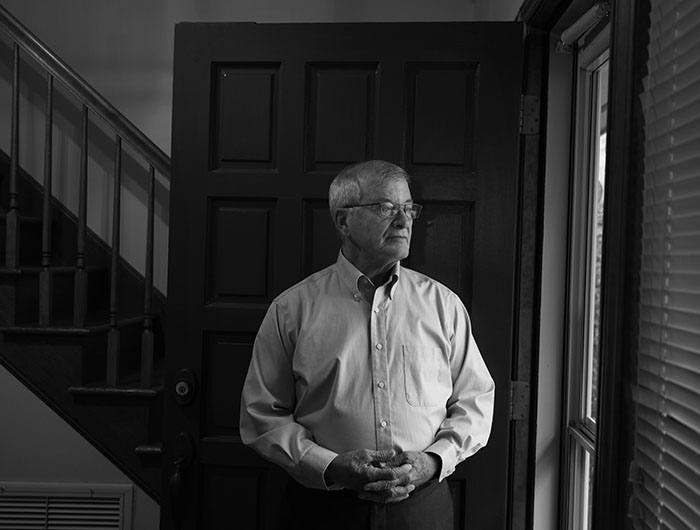
His cause: He co-founded End Poverty Durham, the Religious Coalition for a Nonviolent Durham and Peace Hill, a solidarity contemplative community, to bring faith and community leaders together to reduce racism, poverty and violence. In March 2019, he received the Elna B. Spaulding Founder’s Award at the Partners for Peace celebration at the Elna B. Spaulding Conflict Resolution Center. The award recognizes an individual’s achievement in addressing difficult issues in the community in the spirit of its civil rights trailblazing namesake.
__________________________
“Wake Forest played a major role in forming the values — compassion, equality, justice, leadership and service — that I carry with me today. When I hear people say, ‘Somebody ought to do something about poverty or racism or violence,’ my response is, ‘Well, that somebody may be you.’ As a pastor I’ve encouraged my members to ‘pick up the edge of some great problem and act at some sacrifice to yourself.’ Put your faith in action. Discern your own calling: Is this mission good news? Does it seem impossible to accomplish? Is there a good chance you’ll fail? If you answer yes to all three, that’s a sign the spirit is leading you to undertake the mission. Poverty is an injustice, an affront to God. I’ve felt led, nudged, called to this anti-poverty work. I cannot not do it. We are called to ‘worry about what God worries about when God wakes up in the morning — the suffering of God’s people.’ God is in need of us.”
Tycely Williams (’97)
SPRINGFIELD, VA
Chief development officer for America’s Promise Alliance since December, formerly vice president of development for YWCA USA
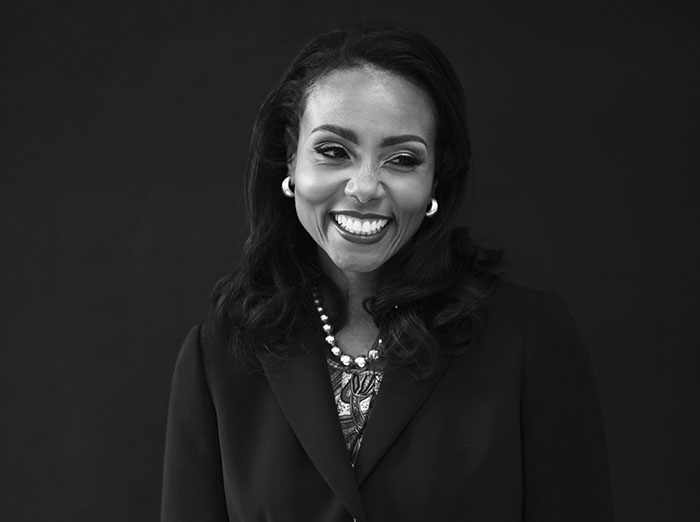
Her cause: Supporting philanthropy. America’s Promise Alliance brings together nonprofits, businesses, civic leaders, educators, citizens and young people to overcome barriers to young people’s success. In development positions, Williams has raised more than $92 million for nonprofits, including YWCA, the American Red Cross National Capital Region, the YMCA of Metropolitan Washington (D.C.) and others. She was artistic director of two community dance studios and led a nonprofit that refurbished computers for underserved areas. She was founding board chair of a public charter school and the first woman of color to serve as president of the Junior League of Washington. The late poet, author and Wake Forest professor Maya Angelou (L.H.D. ’77) helped inspire Williams’ career.
__________________________
“Dr. Angelou knew that I was really not in a great head space, and she explicitly asked what was troubling me. I was preparing to take the LSAT (for law school), and she asked why. I said, ‘Because my parents think that I’ll be a good lawyer.’ And she said, ‘Well, do you want to go to law school?’ And I said, ‘No, not really, but I need a job.’ … She said, ‘In order for you to find joy, you’re going to have to activate courage.’ She didn’t tell me what to do, but she taught me how to find my path forward. … I knew that my heart leaned in a direction of service.
. . . .
I try to be really careful in explicitly stating both as an individual and on behalf of the institutions that I represent that we value all forms of contributions. I have learned through my experiences over the last 20 years that Dr. Angelou’s wisdom is absolutely correct: the way you form friendships and … trusting relationships is to close your lips and open your ears. (You) demonstrate that their contribution is valued. By doing that, people are more apt to give whatever they have, whether it’s more money, whether it’s more time, whether it’s more advice.”
David B. Young (’90)
CHAPEL HILL, NC
CEO of Participate Learning
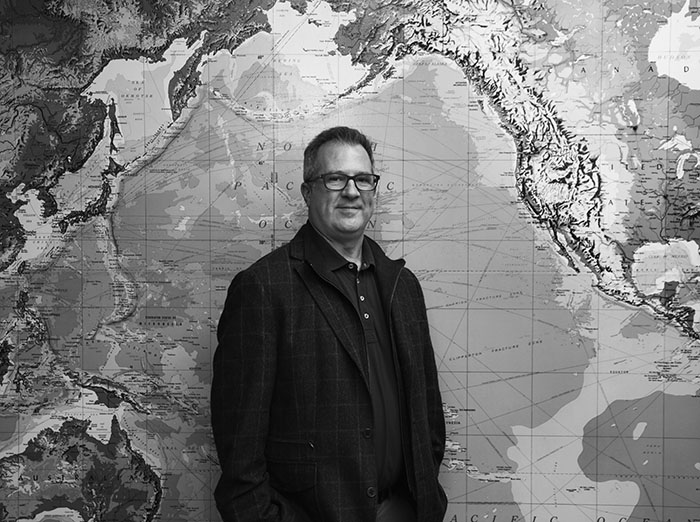
His cause: His company supports global awareness and language learning in K-12 education, resulting in higher test scores and attendance, fewer disciplinary referrals and greater teacher engagement. In more than 430 American schools, it brings in 1,200 international language educators and provides programs to help 3,000 U.S. teachers use a global lens in their curricula. Participate Learning has included his father, retired Elon University President James Fred Young (’56), his mother, Phyllis Johnson Young (’61), his sister, Jane Young Tabor (’92), and his brother, Alan Young. The company was named to the 2019 inaugural RealLeaders 100 list of companies doing pioneering social impact work and has been named to the “Best for the World” companies balancing profit and purpose.
__________________________
“How this all started is when I was 10 years old, we hosted an exchange student from Finland. We fell in love with her, and once you learn to love a country other than your own, you can learn to love many other countries. (Global travel and exchange student) experiences often have been reserved for the lucky few, like my family. These kinds of experiences can be offered to all kids. Kids do better in these programs, and it cuts across every group, every subgroup.
. . . .
Our reason for putting international teachers in front of 25 kids at a time is … to seek a mutual understanding among nations. We’re seeking peace and saving the planet, and we think that U.S. citizens have to be involved in that.”
Dr. Khalique Zahir (’87)
McLEAN, VA
Reconstructive and plastic surgeon in private practice; chief of plastic surgery at Innova Fairfax Hospital
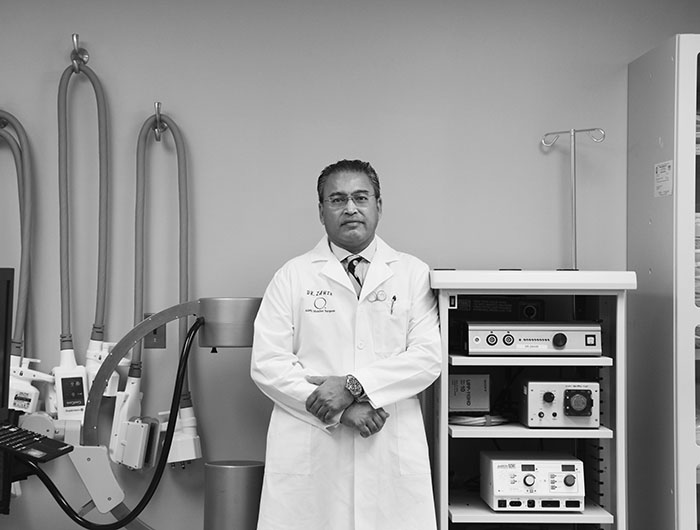
His cause: Islamic Medical Association of North America (IMANA), an association of American-Muslim physicians, dentists and other allied health professionals. It provides resources, mentoring and networking and spearheads medical relief missions overseas. Zahir began his work with the group more than a decade ago and has traveled, among other places, to Somalia, Sudan, Nepal, Ghana and Rohingya refugee camps in Bangladesh. He takes three to four medical mission trips a year, doing burn reconstruction and surgical procedures such as repairing cleft lips and cleft palates. Zahir has served as president and board chair of IMANA and in 2017 received the IMANA Medical Relief Humanitarian Award “for his dedicated passion to serve humanity.” As he told Arlington Magazine in 2017, “When I’m on a trip, I see immediately how my work is changing a life. I get a smile. I get a thank-you. And that’s more than enough reimbursement for me.”
__________________________
“There’s an old saying that when you’ve been exposed to the beauty of the mountains, you will always look for the beauty in the mountains. When you have learned something that you didn’t want to know exists exists, you will always know that. And so, when you see that there’s injustice throughout the world, or there’s sadness in the world and you know that exists, you can’t cover it up. You can’t spackle it. You have to do what you have to do.
. . . .
I was fortunate I started early in my life. That’s where this whole concept of Pro Humanitate comes in. It’s about giving forward. Moving forward and giving forward. And that’s really made a difference in my life. Doing service for mankind, yes, you make a difference in other people’s lives, but the difference you make in your own life, there’s no words for that — that kind of joy.”
READ MORE:
THE BRAGG FAMILY: Pro Humanitate In Action
An extended family in Huntersville, North Carolina, exemplifies Wake Forest’s motto
